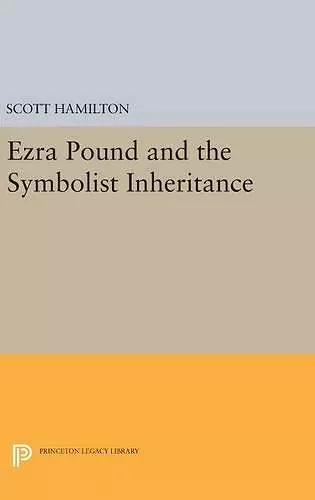Ezra Pound and the Symbolist Inheritance
Format:Hardback
Publisher:Princeton University Press
Published:6th Oct '17
Should be back in stock very soon
This hardback is available in another edition too:
- Paperback£40.00(9780691600468)

In this revisionary study of Ezra Pound's poetics, Scott Hamilton exposes the extent of the modernist poet's debt to the French romantic and symbolist traditions. Whereas previous critics have focused on a single influence, Hamilton explores a broad spectrum of French poets, including Thophile Gautier, Tristan Corbire, Jules Laforgue, Remy de Gourmont, Henri de Rgnier, Jules Romains, Laurent Tailhade, Paul Verlaine, and Stphane Mallarm. This exploration of Pound's canon demonstrates his logic in borrowing from the French tradition as well as a paradoxical circularity to his poetic development. Hamilton begins by explaining how Pound read Gautier's poetry as an example of Parnassianism and of the "satirical realism" of Flaubert and the modern novelistic tradition. He reveals, however, a crucial blind spot in Pound's poetic vision that facilitated his return to precisely those romantic and proto-symbolist elements in Gautier that were celebrated by Baudelaire and Mallarm, and that Pound, as a modern poet, felt obliged to repress. Arguing that Pound's response to symbolism was not specifically modernist, Hamilton shows how his dual attraction to the lyric and prose traditions, to symbolism and realism, and to the visionary and the historical helps us better to understand our own post-modern sensibility. Originally published in 1992. The Princeton Legacy Library uses the latest print-on-demand technology to again make available previously out-of-print books from the distinguished backlist of Princeton University Press. These editions preserve the original texts of these important books while presenting them in durable paperback and hardcover editions. The goal of the Princeton Legacy Library is to vastly increase access to the rich scholarly heritage found in the thousands of books published by Princeton University Press since its founding in 1905.
ISBN: 9780691630380
Dimensions: unknown
Weight: 539g
272 pages